Help us finish what we started
180 years of progress
Over 180 years ago, in 1839, a monumental shift occurred and a major tenet of acceptable society crumbled to the ground. Slavery in the British Empire was abolished. It by no means happened overnight; It didn’t convince everyone; And it was only a start.
But, a group of passionate people had fought long and hard for it, and they weren’t about to back away now.
Abolitionists such as our founder Thomas Clarkson knew that, despite the new law, the task of ending slavery was far from over and that slavery can manifest itself in many different forms. This is why they founded the British and Foreign Anti-Slavery Society in 1939. Today, we are known as Anti-Slavery International, and we are proud to tread in our founder’s footsteps, building a movement of modern-day abolitionists.
We still exist because slavery still exists. It may have modernised – organised by mobile phone instead of quill and parchment, refrigerated lorries used as transport instead of ships – but the underlying abuse remains the same: exploiting vulnerable people for profit or power.
The next chapter
An estimated 50 million people are estimated to be trapped in slavery at this moment.
As you read this, they are being forced to work in heart-breaking conditions; to fulfil every growing demands for cheap clothes and toys, feed our tech obsession in cobalt mines, traffic drugs and guns, or sell their bodies for sex. It happens on the other side of town just as easily as it happens on the other side of the world.
Modern slavery is found in every country in the world, meaning that in every country there are children and teenagers, women and men whose hopes and dreams will never be allowed to happen due to modern slavery.
We have been standing up for these people throughout our history; from ending systems of slavery in Belgian Congo, Peru and China, to playing our part in passing all major anti-slavery conventions, to dismantling slavery systems in modern times.
We have freed thousands of people from slavery throughout the years. The stories of freedom we get from the partners we work with on the ground are what drives us today. They inspire us to remember that change is possible, and that monumental shifts can, and do, occur.
We believe a fundamental shift such as the one Thomas Clarkson helped bring about in 1839 can happen again today.
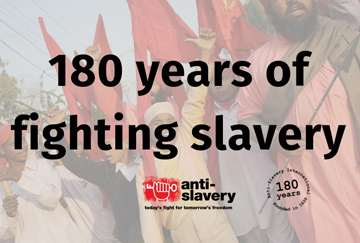
We are 180 years old
We’ve been fighting slavery for 180 years. Will you help us finish what Thomas Clarkson started?
Our history
17 April 1839
The Anti-Slavery Society is formed by Thomas Clarkson, Thomas Fowell Buxton and other abolitionists to campaign against slavery worldwide.
1840
The Society convened the world’s first anti-slavery convention in London.
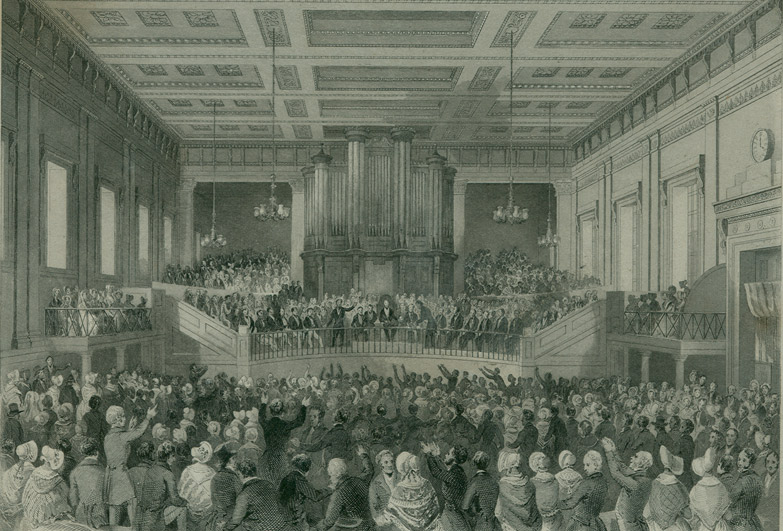
1850
Concerned consumers who care about the products they buy are not just a new phenomenon. In 1850, Anti-Slavery developed ‘slave-free produce’ consumer action groups, promoting alternatives to slave plantation sugar.
1890
We helped establish the Brussels Act, the first comprehensive anti-slavery treaty, which allowed the inspection of ships and the arrest of anyone transporting slaves.
1904 – 1913
Campaigned against slavery practices perpetrated in the Congo Free State by King Leopold II of Belgium. The campaign eventually helped bring an end to Leopold’s tyranny.
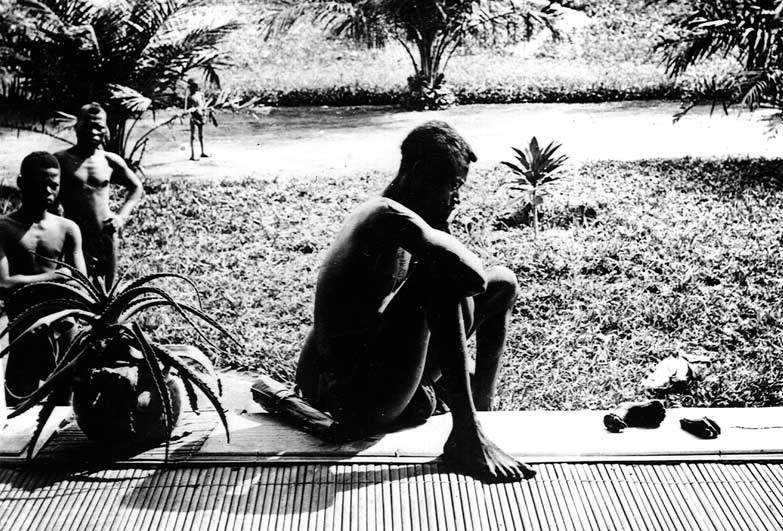
1920
Helped end the indentured labour system in the British colonies after campaigning against the use of Indian and Chinese “coolies”.
1926
Successfully lobbied for the League of Nations inquiry into slavery, which resulted in the 1926 Slavery Convention that obliged all ratifying states to end slavery.
1984
Helped establish the Human Rights Fund for Indigenous People.
1994
An original supporter of the End Child Prostitution, Pornography and Trafficking campaign (ECPAT) and helped set up the UK branch.
1998
One of the organisers of the 1998 Global March against Child Labour, which helped lead to the adoption of a new ILO Convention on the Worst Forms of Child Labour, 1999 (No. 182).
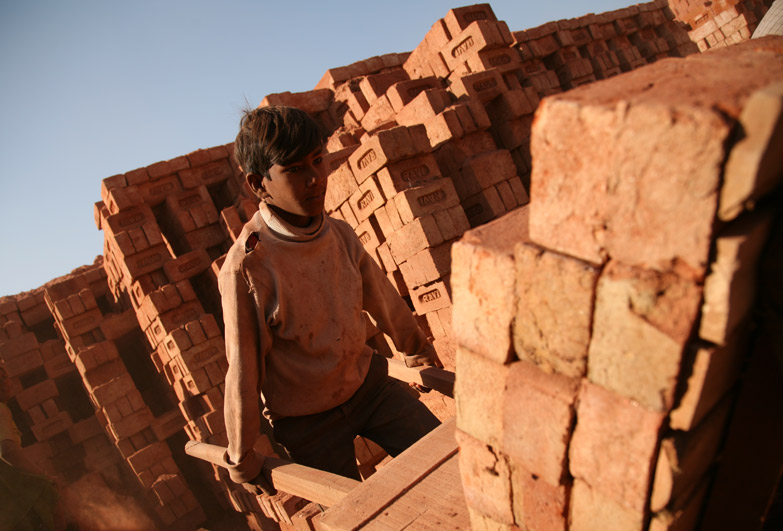
2003
Lobbied the Brazilian government to introduce a National Plan for the Eradication of Slavery.
2004
Successfully lobbied to make trafficking of sexual and labour exploitation a criminal offence in the UK.
2005
Organised a major campaign which resulted in the United Arab Emirates freeing over 3,000 children trafficked to be used as camel jockeys, and UAE, Qatar and Kuwait abolishing the practice.
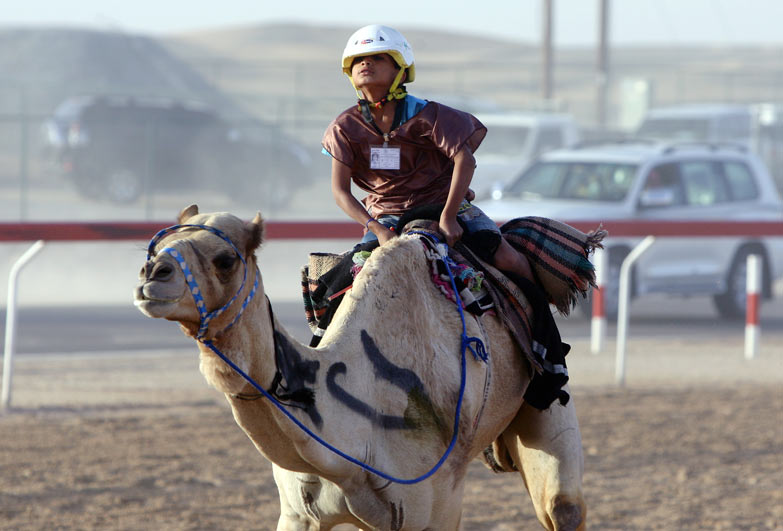
2005
Influenced the development of the Council of Europe Convention against trafficking in human beings, which is the first international standard to guarantee trafficked people minimum standards of protection and support. The convention was ratified by the UK government at the end of 2008.
2007
Helped push for the appointment of a UN Special Rapporteur on Contemporary Forms of Slavery.
2007
We successfully campaigned to criminalise slavery in Mauritania (2007).
2008
The United Nations’ decision to create a new Special Rapporteur on Contemporary Forms of Slavery. They will report directly to the UN Human Rights Council on measures that governments need to take to tackle slavery practices in their respective countries. This is the first new UN mechanism on slavery in over 30 years.
2008
We supported a former slave, Hadijatou Mani in international ECOWAS (the Economic Community Of West African States) court that found the state of Niger guilty of failing to protect her from slavery . The ruling set a legal precedent for Niger and all other ECOWAS countries to protect people from slavery.
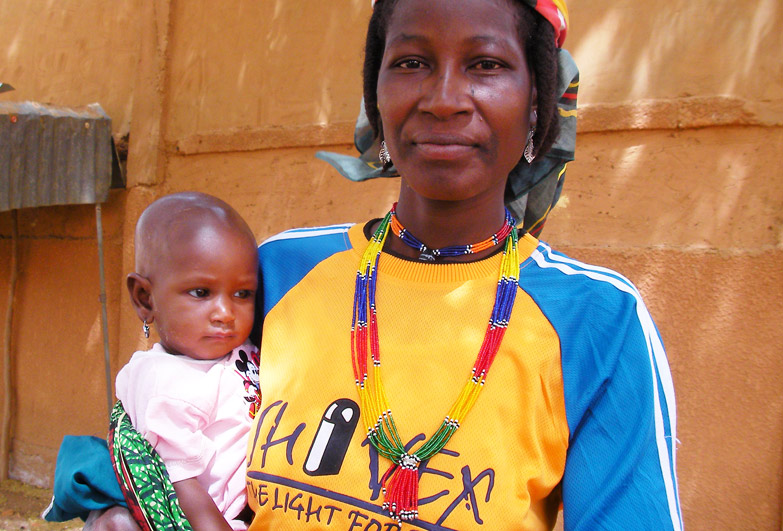
2011
Our Home Alone campaign played a big part in persuading the International Labour Organization to adopt a Convention on Decent Work for Domestic Workers in June 2011, which secures the rights of millions of domestic workers across the globe.
2011
We successfully campaigned for the UK government to sign up to a new EU anti-trafficking law, providing legal basis for protection and justice for trafficking victims.
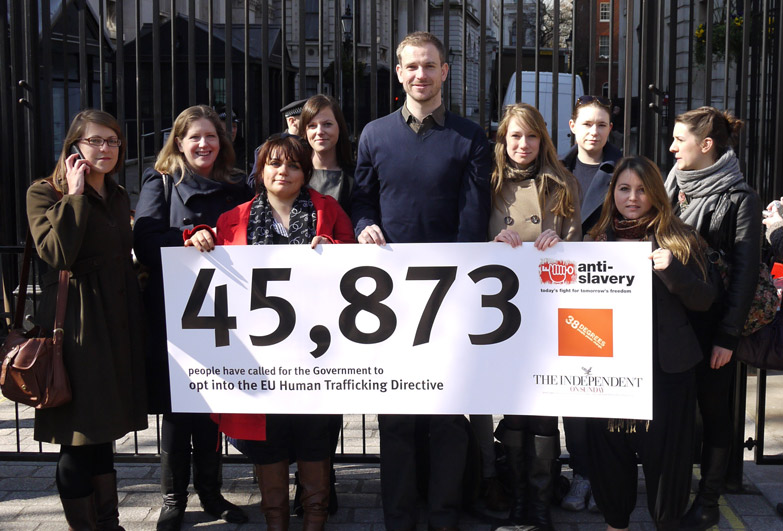
2015
Following persistent campaigning by Anti-Slavery, the UK Government introduced the Modern Slavery Act in July 2015. The Act introduced some victim protection measures, in particular for trafficked children; and a requirement on businesses to report on efforts to tackle slavery in their supply chains.
2016
A landmark case brought by Anti-Slavery and its Mauritanian partner, SOS-Enclaves, saw the conviction of two slave-owners. This was only the second ever such conviction in Mauritania and first resulting in a jail sentence. This represented a big step forward to Mauritania and a sign that the authorities and moving beyond promises and holding slave owners to account. It offers hope to other victims of slavery and acts as deterrent to exploiters.
2017
Forced marriage was included in latest estimates of people in slavery by the ILO. Anti-Slavery has advocated for this recognition for years – forced marriage represents a fundamental denial of rights to millions of women and girls. Ending it is critical to advancing and promoting the rights of women and girls and hence in ending slavery.
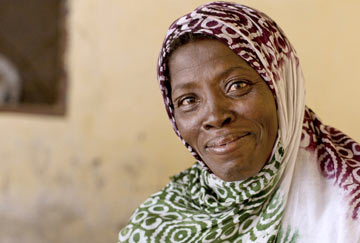
Let us finish what we started
Be inspired by our historical successes and join us to win the next battles against slavery.